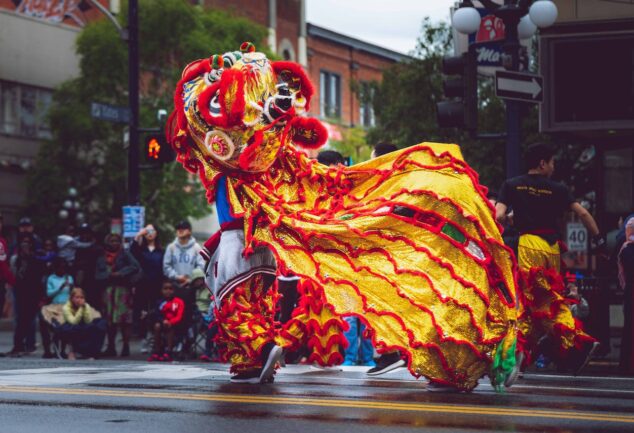Are you planning to move to Canada, but unsure about the visa processing time?
With so many different types of visas and application processes, it can be overwhelming to navigate through the system.
Canada is a popular destination for immigrants, with a diverse and welcoming culture, excellent healthcare, and a strong economy. However, the visa application process can be complex and time-consuming, which can be stressful for applicants.
If you are planning to move to Canada, it’s important to understand the visa processing time and requirements.


This comprehensive guide will provide you with all the information you need to know about the visa application process and the estimated time it takes to process your application.
Whether you are applying for a visitor visa, student visa, or permanent residency, this guide will help you navigate through the process smoothly.
Overview of the Canadian Visa Process
The Canadian visa process can be quite challenging, but it is an essential step for anyone hoping to visit or live in the country. Processing time, visa application requirements, and necessary documentation can vary depending on the type of visa being applied for and the applicant’s personal circumstances.
With careful planning and attention to detail, the process of obtaining a Canadian visa can be a smooth and successful one.

Canada Work Visa Cost: Your Guide to Fees and Expenses

Canada Immigration Programs for Entrepreneurs: A Comprehensive Guide
What is the Average Processing Time for a Canadian Visa?
The processing time for a Canadian visa can vary widely depending on several factors, such as the type of visa and the citizenship and country of residence of the applicant. On average, it takes approximately two to four weeks to process a temporary resident visa (TRV) or visitor visa.
However, processing times for student visas (study permits) and work permits can take longer, with estimates ranging from four to six weeks or longer depending on the seasonality and workload of the processing center.
It is worth noting that these processing time estimates are based on complete and accurate application forms and supporting documents.
Any errors or omissions on the application, such as incomplete information or insufficient evidence of funds, or onward travel arrangements, can significantly delay the processing time or even lead to the refusal of the visa application.
Therefore, it is highly recommended that applicants carefully review the visa application requirements and procedures to ensure a smooth and timely processing experience.
Understanding Your Eligibility
It is important to gain understanding of your eligibility before starting the Canada application process. Different needs and processing times depend on your country of residence, personal circumstances, and the type of visa application you are submitting.
By comprehending your eligibility, you may avoid unnecessary delays and increase chance of a successful visa application.
Understanding Your Eligibility:
– Research Visa Requirements and Application Processes
To determine your eligibility, the first step is to research the visa requirements and application processes for the kind of visa you are interested in. This information can be found on the website of Immigration, Refugees and Citizenship Canada (IRCC).
You can also seek assistance from Canadian visa application centers and other authorized service providers. By understanding the visa requirements, you can determine if you are eligible to apply and prepare all necessary documents.
– Assess Your Personal Circumstances
Your personal circumstances may affect your eligibility for a visa. For example, if you have a criminal record, health issues, or financial dependencies, you may face additional scrutiny during the application process.
It is important to assess your personal circumstances and determine if they affect your eligibility or require additional documentation. If you are unsure, seek advice from an immigration consultant or lawyer.
– Calculate Your Processing Time and Costs
Processing times and costs can vary depending on the type of visa application and your country of residence. It is important to calculate your processing time and costs to ensure that you have enough time and resources to complete the application.
You can check the current processing times on IRCC’s website and calculate the fees using the online fee calculator. Keep in mind that processing times and fees may change periodically.
– Submit a Complete and Accurate Visa Application
Once you have researched the visa requirements, assessed your personal circumstances, and calculated your processing time and costs, you are ready to submit a complete and accurate visa application.
Make sure to carefully review all the instructions and guidelines, provide all the necessary supporting documents, and pay the application fee. Incomplete or inaccurate applications can result in delays or refusals.
– Follow Up on Your Visa Application
After you have submitted your visa application, you can check on its processing status by using the online application tool or contacting the visa application center where you submitted it.
If your application is approved, you will receive a visa stamp on your passport or a letter of introduction. If it is refused, you will receive a letter explaining the reason for the refusal.
You may be able to reapply or appeal the decision, depending on the reason for refusal.
What Types of Visas are Available to You?
If you are planning to visit Canada, there are several types of visas available depending on your purpose of travel. The most common visa is the Visit Visa, which is issued to foreign nationals who wish to enter Canada for tourism, visiting family or friends, or attending business meetings.
The application process requires a valid passport, proof of funds, and a letter of invitation from the host in Canada, among other requirements.
If you are a student planning to study in Canada, you will need a Study Visa. This type of visa allows you to attend a designated learning institution in Canada and study full-time in an academic, vocational, or professional program.
To be eligible, you will need a letter of acceptance from the institution, proof of funds, and a clean criminal record, among other requirements. The visa is valid for the duration of your study program and may allow you to work part-time during your studies.
If you are planning to work in Canada, you will need a Work Visa. This type of visa is issued to foreign nationals who have a valid job offer from a Canadian employer. The application requires proof of a job offer, proof of qualifications, and a medical examination, among other requirements.
The visa is valid for the duration of your employment contract and may allow you to apply for permanent residency in Canada. Other types of visas include Transit Visas for travelers passing through Canada to another destination and Super Visas for parents and grandparents of Canadian citizens or permanent residents.
It is important to choose the visa that best suits your needs and ensure that you meet all the requirements and conditions of the application process.
Are You a Canadian Citizen or a Permanent Resident?
Are you a Canadian citizen or permanent resident? If so, you may be wondering how your status affects the processing time for visas to enter and leave Canada. Canadian citizenship and permanent residency both have benefits and requirements that can impact visa processing time.
Canadian citizenship is the status of being a citizen of Canada and grants individuals the right to vote, obtain a Canadian passport, and live and work in Canada permanently. To become a Canadian citizen, applicants must have lived in Canada for a certain period of time, speak English or French, pass a citizenship test, and have no criminal record.
On the other hand, permanent residency allows individuals to live and work in Canada permanently, without obtaining Canadian citizenship. To become a permanent resident, applicants must meet specific requirements, such as having a certain level of education, language proficiency, and work experience, among others.
To prove Canadian citizenship or permanent residency, applicants may use documents such as citizenship certificates or permanent resident cards. The process to obtain these documents varies depending on the status.
Citizenship certificates are issued to those who have acquired Canadian citizenship and can be obtained by submitting a citizenship application and attending a citizenship ceremony. Permanent resident cards are issued to those who have been approved for permanent residency and can be obtained by submitting a permanent resident card application.
Being a Canadian citizen or permanent resident can affect visa application processes and may have additional requirements or fees. For example, Canadian citizens and permanent residents generally do not require a visa to enter Canada but may need to present additional documents such as evidence of funds or onward travel arrangements.
Additionally, if a visa is required, Canadian citizens and permanent residents may have a faster processing time than foreign nationals. Understanding the benefits and requirements of Canadian citizenship and permanent residency can help ensure a smooth visa application process.
Do You Have a Valid Passport and Additional Documents?
To apply for a Canadian visa, a valid passport is required. The passport must have an expiration date that is at least six months beyond the date of the intended stay in Canada. Additionally, the passport must have a sufficient number of blank pages to accommodate any necessary visas or entry/exit stamps.
The specific passport requirements may vary based on the intended type of visa and the applicant’s country of residence. It is important to carefully review the requirements and ensure that the passport meets all necessary criteria before submitting a visa application.
In addition to a valid passport, there may be additional documents required for a Canadian visa application. These may include proof of medical examinations, police certificates, and other supporting documents such as proof of financial support or educational qualifications.
It is important to carefully review the specific requirements for the intended type of visa and ensure that all necessary documents are provided in order to avoid any delays or issues with the application processing.
Do You Meet the Requirements for Your Chosen Visa Type?
Before embarking on a visa application process, it is crucial to understand the specific requirements for your chosen visa type. This information can usually be found on the official government website or by consulting an immigration officer.
For instance, the requirements for a study permit application typically include proof of acceptance from a Canadian-designated learning institution and evidence of sufficient financial resources to pay for tuition and living expenses. It is essential to note that requirements can vary depending on your personal circumstances, such as your country of residence and the duration of your stay.
As such, it is imperative to carefully review the specific requirements and ensure that you meet each criterion before starting the application process.
Meeting the requirements for your chosen visa type is crucial to avoid rejection and delays in your application process. Therefore, it is important to understand how these requirements relate to your personal circumstances.
For example, a foreign national seeking to become a Canadian permanent resident may need to prove their language proficiency in English or French. Similarly, business visitors must show evidence of onward travel arrangements and sufficient funds to support their stay in Canada. By reviewing the specific requirements of your visa type and confirming that you meet each one, you enhance the chances of a successful application process and avoid any complications.
Please always ensure that you consult with an official government website or an immigration officer for any clarification on the requirements for your chosen visa type.
Completing Your Application
Completing Your Application: To set for a Canadian visa, you need to check the correctness of your application .It should be free from any error. In order to do that you have to provide all the required documents, accurately fill out your application form, and meet all visa requirements.
In this part, we will discuss all what you need to know so that your application will be ready for processing.
Which Application Form Should You Use?
If you’re planning to visit Canada, it’s important to select the right application form for your visa type. There are several application forms available, and each serves a different purpose. For example, if you’re applying for a temporary resident visa, you’ll need to fill out the IMM 1294.
This form is designed for visitors who plan to stay in Canada for up to six months and don’t intend to work or study. On the other hand, if you’re applying for family sponsorship, you’ll need to complete the IMM 5707. This form is intended for Canadian citizens or permanent residents who want to sponsor a family member for immigration to Canada.
If you’re looking to apply for permanent residency, then you’ll need to fill out the IMM 0008 form. This form is specific to applicants who are eligible for one of Canada’s immigration programs and plan to stay in Canada permanently.
Understanding the purpose and eligibility criteria for each of these application forms is crucial to determine which one is right for you. It’s important to note that applying with the wrong form can result in delays or even rejection of your application. By selecting the correct form and filling it out accurately, you can increase your chances of being approved for a Canadian visa.
How to Fill Out the Online Application Form
The process of filling out your Canadian visa application online can seem daunting, but it doesn’t have to be. First, make sure you visit the official Canadian government website to select the appropriate visa application type.
This will ensure that your application is processed as quickly and efficiently as possible. Once you have selected the correct visa type, it’s important to fill out all information accurately, paying close attention to details like passport information and personal details. Take your time to ensure that everything is correct before submitting, and don’t forget to verify that all fields are completed before submitting.
It is necessary that you submit correct details when completing your Canadian visa application online. Provide accurate information about your passport, personal details, and any other relevant information you are asked for.
This information is important to decide if you are eligible for a Canadian visa, hence be as thorough as you can. You should review all entries before submitting your application to ensure it is accurate and finished. To maximize the efficiency of your visa application process, it is advisable to adhere to these instructions and consult the official website of the Canadian government.
How to Submit Your Paper Application Form Through VFS Global
Before submitting your paper application form through VFS Global it is crucial to locate the nearest Visa Application Centre (VAC) and schedule an appointment. This can be done online or by directly contacting VFS Global. Bear in mind that walk-in appointments are not permitted, and having a scheduled appointment is mandatory for application submission.
Once you have your appointment, bring your completed paper application form, along with all requested supporting documents, to the VAC at the scheduled date and time. This includes your valid passport, evidence of funds, and any additional documents required for the specific visa application type.
The staff at the VAC will verify that your application is complete and will provide you with a receipt confirming that your application has been received. It is important that you keep this receipt safe, as it is proof of your application submission and contains your unique tracking number which you can use to track the status of your application.
What Supporting Documentation is Required When Applying for a Canadian Visa?
When applying for a Canadian visa, it is important to gather all the necessary supporting documentation. The specific documents required will depend on your personal circumstances and the type of visa you are applying for.
For instance, applicants for a study permit will need to show proof of acceptance from a Canadian educational institution, evidence of sufficient funds for tuition and living expenses, and a signed letter explaining their intentions to study in Canada. Other common requirements include a valid passport, proof of financial support, evidence of strong ties to your home country, and any additional documents specific to your visa type.
Overall, it is crucial to carefully review the requirements for your desired Canadian visa and gather all necessary supporting documentation before submitting your application. This will help ensure a smooth and efficient application process.


How Much Does it Cost to Apply for a Canadian Visa?
When applying for a Canadian visa, there are several costs to consider. The first cost is the visa fee, which varies depending on the type of visa and the processing time chosen. It is essential to note that all visa fees must be paid electronically in Canadian dollars and are non-refundable, even if the visa application is denied.
Additionally, some applicants may be required to pay for additional services, such as biometric fees, which are paid separately from the visa fee.
The cost of a Canadian visa can range from CAD$100 to $1000 or more, depending on the type of visa, processing time, and country of residence. For example, the cost of a study permit application is CAD$150, and the processing time can take up to three months.
On the other hand, the cost of a temporary resident visa is CAD$100, and the processing time can be as short as one day for online applications. Overall, applicants must carefully consider their personal circumstances and choose the appropriate visa type and processing time to avoid any additional costs or delays.
After Submitting Your Application
After Submitting Your Application: What to Expect and How to Track Its Progress
Submitting a visa application can be a nerve-wracking process, but the waiting game can be just as stressful. Knowing what to expect after submitting your application and how to track its progress can alleviate some of that stress. This guide outlines the steps that follow after submitting your application and how you can monitor its status.

best health insurance in Canada

Cultural Exchange Programs in Vancouver: A Comprehensive Guide
What Happens After You Submit Your Application?
Once you submit your application for a Canadian visa, the next step is the application review process. An immigration officer will carefully examine your application to ensure that it is complete and all necessary documents have been submitted.
If any information or documents are missing, an officer will contact you either by email or through a call and request the missing details. This process could take some time, depending on the volume of applications received, but you can check the processing time for your application type on the Canadian government’s website.
If your application is approved, you will receive an official acceptance letter. This letter of introduction serves as proof that your application has been accepted, and you can use it to travel to Canada. Once you arrive in Canada, this document will be presented to the immigration officer at the port of entry for review along with your supporting documentation.
If everything is in order, you will be allowed to enter Canada. Therefore, make sure to keep all your documents ready before submitting your application and make sure you have all the necessary documents with you while traveling to Canada.
In conclusion, understanding the Canada visa processing time is crucial for anyone planning to travel, work, or study in Canada. With this comprehensive guide, you now have the tools and knowledge to navigate the process smoothly.
Remember to plan ahead, gather all necessary documents, and be patient. Before you know it, you’ll be exploring the beauty of Canada!




